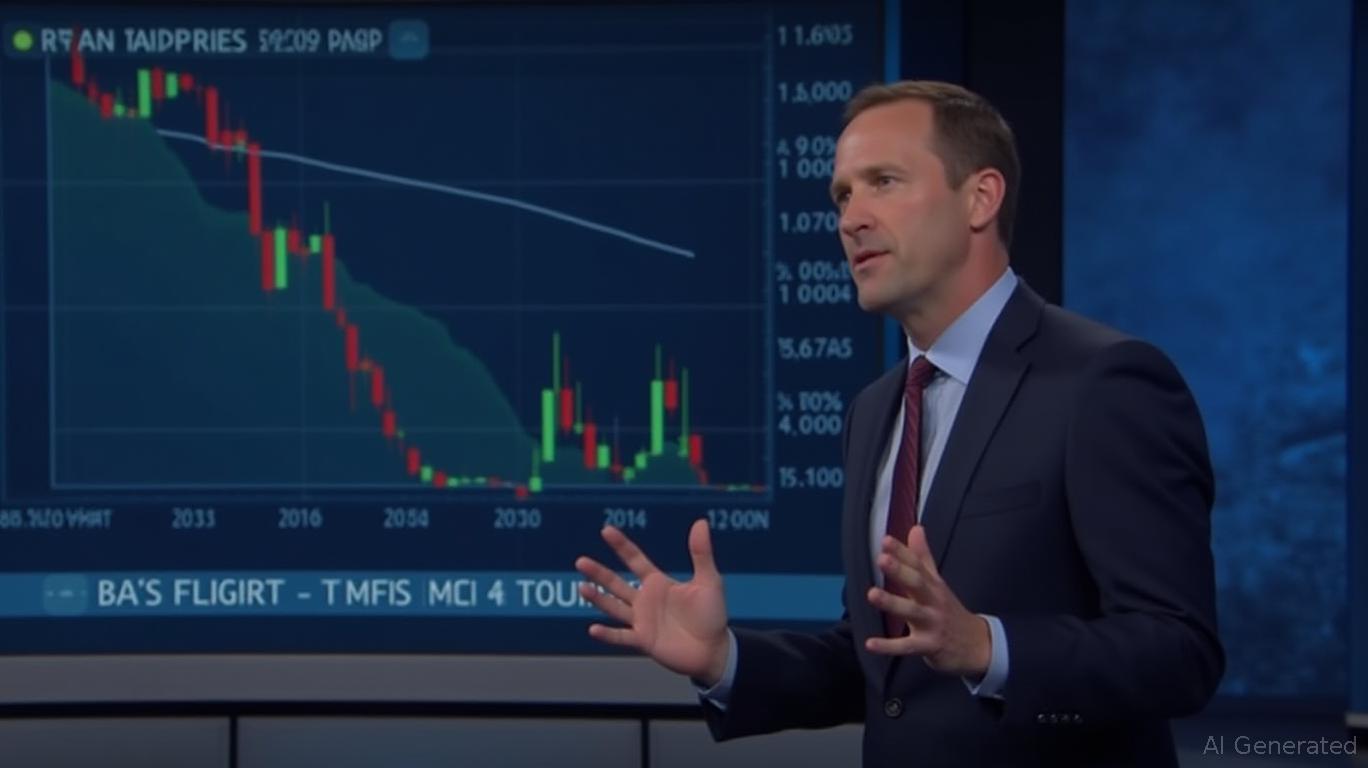Global authorities utilize blockchain technology to eliminate anonymity in cryptocurrency taxation
- Global tax authorities intensify crypto crackdown using blockchain analytics and data-sharing frameworks to track unreported gains. - IRS and HMRC enforce strict compliance: crypto classified as taxable property, with penalties up to 100% of owed taxes and criminal prosecution risks. - OECD's CARF mandates cross-border crypto reporting from 2026, aligning with U.S. Form 1099-DA and CRS to eliminate evasion loopholes. - Investors face mandatory disclosures (UK 2026 framework) and AI-driven audits, with HM
Tax agencies across the globe are ramping up their pursuit of undeclared cryptocurrency profits, utilizing sophisticated blockchain tracking tools and international data-sharing agreements to monitor transactions and enforce tax laws. Not reporting crypto-related taxes can result in hefty fines, audits, and even criminal prosecution, as governments tighten regulations and adopt global standards such as the OECD’s Crypto-Asset Reporting Framework (CARF), as reported by

The Internal Revenue Service (IRS) in the United States and the UK’s HMRC have both adopted assertive measures to oversee digital currencies. In the U.S., the IRS treats crypto as property, so taxable events include trading, selling, or using crypto, similar to how stocks or real estate are taxed. Authorities employ analytics platforms like Chainalysis to connect wallet addresses with real-world identities, even within decentralized finance (DeFi) networks. Likewise, HMRC has moved from simply educating the public to actively enforcing compliance, issuing “nudge letters” to those suspected of underreporting and imposing fines up to £300 for not providing personal information to crypto platforms, according to
Penalties for failing to comply are significant. The IRS may impose fines as high as 25% of unpaid taxes, while HMRC can demand up to 100% of the owed tax for nondisclosure. In the most serious cases, intentional tax evasion can result in criminal charges and jail time. These actions are part of a larger initiative to reduce the tax gap, with the UK projecting an extra £315 million in revenue by 2030 through crypto enforcement, Apex Accountants reports.
International collaboration is strengthening these initiatives. Beginning in 2026 under CARF, crypto exchanges and platforms will be required to report user transactions to tax authorities, including details on identities, disposals, and asset categories. This is in line with the U.S. Form 1099-DA and the Common Reporting Standard (CRS), promoting transparency across borders. Even privacy-focused cryptocurrencies like Monero (XMR) and
The message to investors is unmistakable: following tax rules is now mandatory. HMRC’s new framework, effective 2026, will require UK taxpayers to report all crypto-related activities, including trades, gifts, and staking rewards. At the same time, the IRS is focusing audits on wealthy individuals with substantial crypto assets, using artificial intelligence to identify discrepancies, Cointelegraph notes.
Those trading in unpredictable markets—such as the recent case of a crypto whale earning $17 million from bets on
To reduce exposure to penalties, specialists advise taking a proactive approach to compliance. Investors should keep comprehensive transaction records, use crypto tax software to calculate gains, and consider voluntary disclosure if previous returns were incomplete. Both HMRC and the IRS have programs that offer reduced penalties for early reporting, helping taxpayers avoid criminal prosecution, according to Cointelegraph.
As authorities strengthen oversight, the days of anonymous crypto trading are coming to an end. Investors must adjust to a new environment where transparency is enforced through technology and international cooperation, making digital assets less attractive for tax evasion.
Disclaimer: The content of this article solely reflects the author's opinion and does not represent the platform in any capacity. This article is not intended to serve as a reference for making investment decisions.
You may also like
ZEC rallies 12% as bullish momentum continues; Check forecast

Regulatory transparency drives a boom in crypto ETFs, with major players such as T. Rowe Price joining the market
- Canary Capital launches first U.S. ETFs for Litecoin and HBAR on Nasdaq, enabled by SEC's post-shutdown regulatory clarity streamlining crypto fund approvals. - T. Rowe Price files active crypto ETF targeting 5-15 assets including Bitcoin, while Fidelity and Osprey expand offerings, signaling institutional adoption acceleration. - Over 155 crypto ETFs await approval as eased regulations and growing demand drive market maturation, with analysts predicting over 200 listings in the next year.
Privacy, Reimagined
Bitcoin News Update: The Appeal of Bitcoin Compared to Liquidity Concerns: S&P Removes Strategy from Index
- S&P Global downgraded Strategy Inc. to junk status, removing it from the S&P 500 due to heavy crypto exposure and liquidity risks. - The company holds 640,808 BTC ($74B) but faces $15B in convertible debt, risking asset liquidation if Bitcoin prices drop. - CEO Michael Saylor remains bullish, aiming for a $2T Bitcoin portfolio by 2040 despite market volatility and mixed crypto treasury results. - JPMorgan and others are adapting to crypto, allowing digital assets as loan collateral, signaling growing ins
